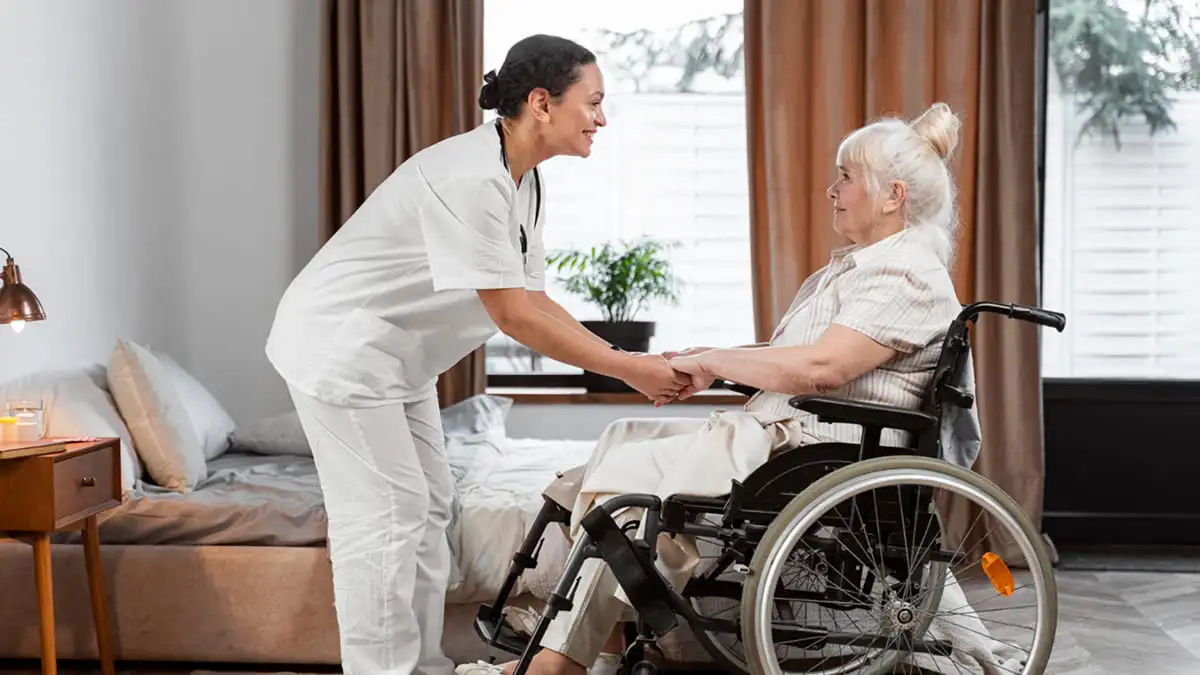
Live-in care is where a fully trained, professional caregiver moves into and lives in the service user’s own home to provide them with around-the-clock care, along with companionship and support.
The aim of live-in care, thus, is to provide personalised care which ensures that the specific needs and preferences of individual service users are met.
Care provided in live-in care contexts, as with all other forms of care, is based upon the individual’s personalised care plan which allows for clients to experience a better quality of life, in the comfort and familiar environment of their own home, while receiving assistance with a range of daily tasks.
NICE guidelines on home-care (NG21) highlight live-in arrangements as a way to deliver truly person-centred support which preserves service users’ independence and dignity.
Age UK likewise notes that for service users, staying at home can feel less bewildering than residential options, particularly for people who value familiar surroundings and community ties.
The advantages of live-in home care include the following:
In summary, live-in care can provide you or your loved ones with personalised care and support, maintaining individual dignity and independence; by staying in your own home, you can maintain the routines of life you used to prior to seeking live-in care, preserving your personal freedom.
In addition, live-in carers can offer you with, alongside emotional support, companionship, in addition to preserving existing opportunities for social interaction in your present routine and/or facilitating new social interaction opportunities. This can help you to combat loneliness and isolation, and the live-in carer can help you to maintain, as mentioned, connections within your local community.
At Tidal Living, we provide live-in care for our clients, which follows the following stages:
At Tidal Living, we offer psychotherapist-led, emotionally intelligent support. Our founder, Sabbir Ahmed, has managed mental health services in the NHS, including safeguarding and conducting risk assessments for individual service users. This experience shapes our approach at Tidal Living, in particular how we notice subtle mood changes of service users which could belie difficulties, or issues, put relationships at the heart of care provision, offering companionship to our service users which combats loneliness, and thereby provide our service users with a holistic approach, which eases anxiety and can reduce carer burden (PubMed Central).
Studies (Reckry et al. 2024) link continuity of the same home-care worker with better outcomes and stronger client relationships; at Tidal Living, we strive to ensure continuity of care within our live-in care service.
At Tidal Living, every live-in carer assigned to a service user completes advanced training in dementia support, falls prevention and shared decision-making, as well as receiving regular, monthly reflective supervision sessions, following Regulation 18 of the Health and Social Care Act (2008). Our carers use evidence-based guidance, including the National Council on Aging’s fall prevention conversation guide, to spot and reduce fall risks, from rearranging furniture to prompting strength-and-balance routines.
As part of our live-in care service and the other services we provide at Tidal Living, we integrate smart technology into our homecare offerings, including e-MARs, predictive alerts which warn service users and their loved ones, thus reducing medication administration errors (Stolic et al., 2022; Alenius & Graf, 2016), ensuring service users’ safety at Tidal Living.
Live-in packages begin with a holistic assessment which explores your health goals, daily rituals and community ties, in line with NICE recommendations for collaborative care planning and British Medical Journal (BMJ) research.
Our live-in care plans are reviewed whenever service users’ needs evolve, ensuring that live-in care is personalised to you and that it meets your needs.
Independent UK analyses, for example by Gousia and colleagues (2024), show that when someone needs one-to-one support, live-in care can be more affordable than residential nursing homes because there is no need to pay additional accommodation costs besides the cost of living in your own home.
Regular spot-checks by our registered manager, Sabbir Ahmed, ensure that live-in care service is of a high quality, and the safety of our service users is ensured. At Tidal Living, Regulation 12 of the Health and Social Care Act (2008) serves as a guideline to safe care, and underpins every risk assessment we conduct.
Not ready to subscribe yet? No worries. Come back anytime and join our newsletter to get the latest updates, offers, and insights — straight to your inbox.

CQC regulates Tidal Living Ltd to provide care at Osmani Trust. We haven’t inspected this service yet. We checked this service was likely to be safe, effective, caring, responsive and well-led during registration.